Vučić: I'm a man with a new idea
Friday, 30.08.2013.
13:53

Vucic: I'm a man with a new idea With a fantastic support of citizens of even 69%, this energetic lawyer -one of the best students of his generation – does not hurry to formalize his positions. While chatting before an interview in the Blue room of the Government of Serbia on the second floor in Nemanjina Street, about a football game between Serbia and Croatia which is to be held next Friday in Belgrade (Vucic is a big football fan; his second big hobby is collecting vines and he is considered to be a great connoisseur of vines, and a visit to a vine cellar in his father’s house in Jajinci has become a matter of prestige among foreign politicians and state heads coming to Belgrade) Vucic is complaining about the fact that some of his associates abandon him because of the killer working tempo he has imposed. It is hard for them to endure his workaholic rhythm from 7.30 a.m. to 8 p.m., sometimes 10 p.m., seven days a week including Saturdays and Sundays. A Belgrade journalist, who knows him well, says that Vucic does not hide that because of his exhaustion he is sometimes administered infusion. Our conversation quickly switches from football to political issues. I ask him how he assesses the current political relations between Croatia and Serbia in the light of his recent visit to Zagreb, but also because of the fact that Croatian Prime Minister Milanovic was in Belgrade in February and also two presidents – Ivo Josipovic and Tomislav Nikolic – in a very short period of time met firstly in Zagreb and then on Brdo at Kranj. -Our relations are – real. We have tried to rationalize them completely, primarily to make them sincere and to free them of some attributes that might blur the real state. Because of that the regular meetings are so important, from both sides; we try to make them exclusively operational, brutally pragmatic in order to have immediate results. When I had taken the responsibility to submit cadaster charts, I did not wait agreed time to pass but immediately started to deliver what was ready, no matter was it too soon.What is the point to make maneuvers where there is no need for that? I am very satisfied with that because it is our mutual decision and both sides are acting politically mature as much as possible. In that way we do our best for our countries and citizens.A dispute about whose Nikola Tesla is, and neglecting his heritage, is ridiculous. Questioning of the fact that you have 1244 or 1246 islands, as a provocation of Serbia due to UN Security Council Resolution, which incidentally has the same number, is just inventing reasons for the polarization at any cost. How is your cooperation with the highest Croatian state officials? I do respect president Josipovic, Prime Minister Milanovic, Vesna Pusic, Mimica. Our relations are linked to goals that we have to achieve and the current results speak for themselves about how we respect each other and how much we respect agreements. We do not have a reason to patronize each other in order to present our relations better than they are or to show them in a way someone expects us to do so that they would have better opinion of us. At this moment, in your opinion, what are “open issues” of those relations? I think that it is very important and till today has not been recorded yet: “Open issues” are issues of the best forms of our cooperation that will provide best results. Thus, for a long period of time we have not had a simulation of cooperation, but we strive to define problems so to solve vitally important issues more efficiently than before. It is very important to leave the present condition of “cold peace”, to keep a cool head and take a proactive path; to move into an active phase based on rational problems that should be very clearly and precisely realized. “Cold peace” is an artificial phrase that should have blurred the real problems and transferred the whole story in the PR field that had nothing to do with political trends. Still, how to solve those issues? We can solve all open issues in the most modern ways, recognizing the fact that we will all soon live in one European community with standards and principles that should be recognized because of ourselves. Open issues are how to solve problems that people who are not from this time produce. People, who would prefer to continue with “cold war” or real war, who would wage war without any reason i.e. wishing to prevent the emancipation of our societies and countries. Croatia and Serbia have not completely agreed upon issues regarding mutual borders. Do you expect problems to occur? That is a complex and difficult process but I am convinced that we can with compromise on both sides reach the final solution. Day before the celebration of the Croatian homeland gratitude day, you stated that because of the victims of the Oluja military action it was “a sad day for Serbia”. The days when Oluja happened are the most difficult days for us. We consider that the largest ethnic cleansing in Europe after WWII happened then. I have said several times that our assessments and perceptions of certain events from our past do not coincide, apropos they are usually totally opposite. However, recently I have said that we in Serbia have despised criminals who had killed people in our name and that I expect others to do the same. I am aware that it seems hard and impossible for many. In fact, what we can, is to do everything in order to enable the return of as many as possible expelled people to their estates, to return or compensate their property and to enable them to have a normal life and disposing of their property . Today, Serbia has the highest number of the displaced and refugees and we are trying to integrate them as much as we can, but that is extremely difficult, especially due to the fact that they constantly hope they will be able to return to their homes. We can do more on that plan and that would be a way to overcome some obstacles. Constant investigations and processing of crime and criminals are also a process leading to justice that is extremely important to the victims and expelled. I also expect that the new Ambassador of Croatia in Belgrade, who has a vast experience in that field, will be an excellent interlocutor and contributor regarding the subject of justice establishment. (Jutarnji List/Pedja Milosavljevic) Do you agree that in recent Croatian history there are also “sad days”, for example November 18, the day Vukovar fell, after which the Ovcara massacre followed? You are a journalist I especially appreciate also due to the fact that you led a team of journalists from Croatia and Serbia who created the remarkable documentary “Vukovar, final cut”. If I am informed well, that film came across the same reception at the premieres in Belgrade and Zagreb. It was broadcasted many times on the national channel B92, while in Croatia that did not happen, and I am truly sorry about that. Such projects that are the result of professional research reflect one part of “sad times” from all sides. Apart from that, the Serbian judiciary processed that and we have legally binding verdicts for 15 criminals who have been sentenced to a total of 207 year of imprisonment, while one 20 year verdict is currently before the Court of Appeals. In a verdict, the judge Vesko Krstajic, stating that not all perpetuators were present, quoted Marko Miljanov “heroism is to protect yourself from the enemy, and humanity is to protect the other from yourself”. We have to proceed to determine the facts and process crimes, we must list all the victims, cherish memories and have respect for all the victims, draw the line of all events, inform our citizens about all data and educate our current and future children so that these crimes never happen again. Also, I hope that all individuals responsible for the crimes towards the Serbs will be held responsible in front of the face of justice in Croatia. Can the relations of Serbia and Croatia, despite of the trauma from the recent past, be a role model on “the powder cag”, the Balkans, such as are the relations between Germany and France today, no matter of atrocities in WWII, a model of good relations in Europe? I would not like to make a direct parallel between our countries and cases, but some political moves, agreements, some projects could be a role model for us. The important thing is that this space – cultural, economical, social is filled as intensively and constructively as possible. We have more chances to realize some projects together then on our own. Some successful projects, such as Arte channel created by Germany and France, can be an interesting role model. Focusing on the development of our countries will certainly change our societies more successfully. I am convinced that our countries will never again get into a conflict, and that violence will never happen again. The obligation of all of us is to prevent that. What about economic relations? - We can do a lot for each other on the economic level. For example, we can help Croatia establish more productive relations with Russia, and Croatia can help Serbia in the process of EU integration, or we can help you regarding some projects with which we could get you the UAE interest. The large infrastructure projects such as Zagreb-Belgrade railway, which not only connects us, but connects Western Europe with Turkey and the Middle East, the navigable Sava river full of river traffic, the Danube river as a common resource which we are not using enough, and within the European Commission we have a Committee regarding the development of the Danube region countries which none of us is using correctly… I believe that it is possible to institutionalize that relations through interstate agreements, but also through mutual institutions. Key words for both countries are: we must build fair societies, equal for everyone, tolerant and open, multicultural with the efficient state apparatus. Croatia is a member of NATO and EU, Serbia is not. Is that fact an obstacle for better relations or vice versa, a chance for their improvement? You remember very well a story about two shoe traders who went to Africa and when they saw that all people were barefoot, one man sent a telegram to the central post: a disaster, there are no jobs for us because all of them are barefoot. The other man says: Great, a huge market and possibilities, because no one wears shoes… Someone will certainly see difficulties but I see chances; we can use the accession funds more efficiently by studying your mistakes because of which you have not used what you could have. Many funds imply partnerships between a candidate and member states and it is a great chance for cooperation. Creation of new models of cooperation can only be supported by EU institutions and NATO. We are a member of PfP and for the time being that is enough for us, but that is also a good position for a cooperation. How much will you benefit from the Croatian experiences on the EU path? I would like to have lessons learned on the others not on our mistakes, and because of that our accession success will be equivalent to learning from other people’s mistakes. We have to accelerate our accession to the maximum. We have a feeling of being late and along with that we will have to overcome new barriers set for new members. Regardless of the moment of becoming a member, we have to augment the level of integration into European and world economy trends, to the maximum, raise our standards, adapt the institutions, so that they are complementary to the European ones. Those are great challenges and we will use everyone’s experience and assistance from anyone who will offer it. Your Prime Minister Dacic has mentioned the idea of Scandinavization of the Western Balkans region. Similar ideas are shared by some of the Non-governmental organizations in Croatia. What is your perspective on that? We do not need to love each other but we have numerous common interests. Scandinavization could mean a lot. I would like, as in Scandinavia, our countries to achieve a strong social sensibility, low social differences, high level of human rights respect and to ensure a dignified life for our citizens. That economic, welfare and social development would qualify us for the next level of mutual cooperation, which would be based on an agreement regarding the most rational organizing speaking about the advocacy of our interests, representation, etc… I would start from very concrete projects with no great pretensions, but with sincere wishes based upon real needs and foundations. We should not get carried away that it is possible to copy some of the models because we are neither Norway which has not waged war for 500 hundred years, nor we have so much oil… But we can strive to be hard working, to have a feeling of solidarity, we can save and try to realize our interests but not at the expense of other. And if they match, then it would be the best synergy that would bring to everyone some new benefit and stability. (Jutarnji List/Pedja Milosavljevic) How would you assess the position of the Serbian minority in Croatia today… I will not use phrases that minorities are those who bind us. We must be brutally sincere on that plan too, firstly to ourselves, and to ask ourselves have we done enough to protect the Croatian minority in Serbia, giving them all the rights they are entitled to according to the European and human standards. The Serbian people in Croatia have a very complex position and we are ready to help as much as we can to improve significantly the situation and along with the possibility of their return, with their property, safety, individual rights and freedoms. There are a variety of situations, from the cruel relationship towards the helpless, whether they are locals or returnees to the fact that certain issues are yet improving. However, it is evident that great progress has to be made speaking about elementary rights and safety, realization of housing rights and rights to property. … and what about the Croatian minorities in Serbia? The safety of the Croatian minorities in Serbia is incomparably at a higher level than that of the Serbs in Croatia. Here, we can talk perhaps about improvement of some rights relating to what is declaratively and legally regulated to be implemented. If there are single cases with property disputes they should be solved in the most efficient way and certainly we will work on it. I will personally deal with that if necessary. We really want Vojvodina to be the European center of multiculturalism because it is an unique place in Europe where 26 nations or national and ethnic groups live together (with six official languages, five confessions…) and for the Croats to be the part of the unique community, to completely enjoy all the rights that our Constitution guarantees them but also the highest standards of EU. At the same time, problems we are having with not printing textbooks in the Croatian language we will have to solve faster than before. it is a shame for Serbia for not being able to solve such a small problem for years. What should be done to avoid incidents such as attacks on students of theology in the monastery Krka, or recent breaking windows on the Croatian hall of culture in Sombor? We must do everything to make countries that will provide maximum safety to every citizen and where diversities would be treated as values and not as a trigger for manifestation of violence. Perhaps we could introduce some principles of positive discrimination when speaking about minorities. so that every incident on chauvinistic basis is punished more severely, to impose a maximum and not the minimum sentence and the police to react more rapidly. Of course, hooliganism will not disappear, but we must do everything to minimalize incidents, to condemn such a behavior in all segments of our societies. I remember when we had lines of refugees passing through Belgrade after Oluja, we had constant messages sent to citizens to take care of neighbors from the other nations because there was a potential danger of retaliation. Those are some patterns of behavior we have to develop. Are economic relations between Serbia and Croatia leading or lagging over political ones? There is a loyalty card whose founders are the largest Serbian company NIS and the largest Croatian company Agrocor. They buy on NIS petrol stations and in IDEA shops and they have certain discounts, benefits. Since both companies are active in Bosnia and Herzegovina I believe that it is possible to have the same there. I state this more symbolically than promoting it: we have to create more similar projects out of which individuals and our economies could have direct or indirect benefits. We must be at a service of a better life for our citizens. Only if they feel that improvement every day through our intensive economic and political cooperation our policies will be successful. And there is CEFTA agreement… That agreement proved to be very successful. Speaking about our mutual relations, with Croatia in EU, we have to design some kind of CEFTA Plus, find new forms of cooperation which would recognize new stances and with the support of Europe or other countries in the region find a new way of cooperation which aim would be to proceed with the best we had out of it till now and to improve it, and to use new positions in an innovative way to the benefit of all. It can be heard from the Serbian side that Serbia is more open for the Croatian investments, than Croatia for the investments from Serbia. If you think that is true, how to overcome this condition? That is obvious, for a long period of time. I have already mentioned that we need innovative forms of cooperation. In this field too, it would be especially important for our experts to make good analyses of problems we had till now and to make suggestions how to overcome those problems, to make us all feel equal, satisfied with the cooperation and position of our companies when investing in Croatia and vice versa. That is our obligation. Personally, I do not have a problem that everything should be according to the system – an eye for an eye. We have a project of the reversible hydro power plant Djerdap 3 and I am certain that Croatia would be interested in getting a part of the energetic stability. We would be very interested in assisting you to participate in the South stream project, to have either gas interconnection or to make a new pipe (at Sotina is connection point). Of course, we could connect the Romanian, Serbian and your system at the same time: Arad-Mokrin-Sotin. What do you see as the biggest Serbian problems and how do you intend to solve them? What burdens me, and I believe that the similar situation is in Croatia too, is an atmosphere of general negativism, nothing is good, nothing could be done… I would like to initiate more and to encourage optimism, self- confidence, positive relation towards ourselves, towards what can be defined as a success, a progress. With our results we have stopped the inertia which pushed us in a tragic direction. We have not still succeeded to redirect that inertia in citizens towards the issue that would be an inevitable result of our policy, and that is a better life in the better country integrated into the European developing civilization trends, the country which successively solves its problems. "I use my power to modernize Serbia" In Croatia, and not only in Croatia, people see you as the most powerful man in Serbia? Are you really that? I would not like to talk about categories of power. I think that the support of citizens of Serbia to someone how I see it, who is the most exposed, maybe the most dynamic and at this moment perhaps it would sound immodest to say, to someone who is very courageously trying to return Serbia to the path that would make it more appreciated country, economically stronger and whose citizens are satisfied is wrongly defined. I am aware how much is that at the same time a double-edged sword, but my beliefs that we must do it do not leave a space to hesitate and calculate. Mark Twain said that the man with a new idea is a crank until the idea succeeds. Perhaps, many saw us at the beginning of our term like that, but we have outlined to make key steps to Europe as we did and that we would make key progress regarding Kosovo in just a year. This support is a form of consensus on politics we are leading, on difficult decisions we are making and on principality in the fight against corruption, the European integration, efforts to have a better life… You are considered to be a main engine in the fight against corruption. We have inherited a lot of unsolved injustices and citizens are the most vulnerable to that. We rolled up our sleeves, we are checking suspicious privatizations which are connected to the biggest power centers, because, until the injustice is corrected it is hard to make new steps. And if we speak about the power, it is usually a negative category in us. However, what I have of power, I try to use it for a general wellbeing, using at every moment the maximum of my strength and capabilities, trying to provoke in others the same need to be exquisite. I use the power to compensate the delays, to bridge the abyss and to stop all who had robbed the country without any scrupulous and destroyed the possibility for the citizens to live better. And I will always use my power only to modernize the country, to create a fairer system, economically sustainable, socially more honest and more successful… I am aware of the fact that problems we are having cannot be solved otherwise but with sacrifices and commitment. and my wish is to convey that to politicians from my party but to the political and economic, social elite of Serbia. Does the fight against corruption help you in attracting foreign investors? I see the power in categories, how successful I was I in persuading investor to make a deal about investment in JAT and to make out of ruined company a successful one, which will have a growth and which can even tomorrow help other similar companies in the region, which will help the Nikola Tesla airport to develop and to become the cargo center, a bridge between the East and the West. Or, whether we will succeed to bring an investment in one of the most modern factories of microchips not only to employ a lot of young people but in order to make that factory the engine of development of IT society in Serbia or how capable am I to attract and motivate young and successful experts from the world to join us in a mission to recover the Serbian economy and society. A classical conception of power as arrogance comes from our previous experience. I will try the paradigm to be changed and the one who contributes to the community to develop and citizens to live better to be powerful. Jutarnji list Although he is literally the fourth man in the Serbian political hierarchy, the First Deputy Prime Minister and the president of the ruling Serbian Progressive Party, Aleksandar Vucic (43) is, really, the most powerful man in the country. Drago Hedl "Although he is literally the fourth man in the Serbian political hierarchy, the First Deputy Prime Minister and the president of the ruling Serbian Progressive Party, Aleksandar Vucic (43) is, really, the most powerful man in the country."
Vučić: I'm a man with a new idea
With a fantastic support of citizens of even 69%, this energetic lawyer -one of the best students of his generation – does not hurry to formalize his positions.While chatting before an interview in the Blue room of the Government of Serbia on the second floor in Nemanjina Street, about a football game between Serbia and Croatia which is to be held next Friday in Belgrade (Vucic is a big football fan; his second big hobby is collecting vines and he is considered to be a great connoisseur of vines, and a visit to a vine cellar in his father’s house in Jajinci has become a matter of prestige among foreign politicians and state heads coming to Belgrade) Vucic is complaining about the fact that some of his associates abandon him because of the killer working tempo he has imposed.
It is hard for them to endure his workaholic rhythm from 7.30 a.m. to 8 p.m., sometimes 10 p.m., seven days a week including Saturdays and Sundays. A Belgrade journalist, who knows him well, says that Vucic does not hide that because of his exhaustion he is sometimes administered infusion.
Our conversation quickly switches from football to political issues. I ask him how he assesses the current political relations between Croatia and Serbia in the light of his recent visit to Zagreb, but also because of the fact that Croatian Prime Minister Milanovic was in Belgrade in February and also two presidents – Ivo Josipovic and Tomislav Nikolic – in a very short period of time met firstly in Zagreb and then on Brdo at Kranj.
-Our relations are – real. We have tried to rationalize them completely, primarily to make them sincere and to free them of some attributes that might blur the real state. Because of that the regular meetings are so important, from both sides; we try to make them exclusively operational, brutally pragmatic in order to have immediate results. When I had taken the responsibility to submit cadaster charts, I did not wait agreed time to pass but immediately started to deliver what was ready, no matter was it too soon.What is the point to make maneuvers where there is no need for that? I am very satisfied with that because it is our mutual decision and both sides are acting politically mature as much as possible. In that way we do our best for our countries and citizens.A dispute about whose Nikola Tesla is, and neglecting his heritage, is ridiculous. Questioning of the fact that you have 1244 or 1246 islands, as a provocation of Serbia due to UN Security Council Resolution, which incidentally has the same number, is just inventing reasons for the polarization at any cost.
How is your cooperation with the highest Croatian state officials?
I do respect president Josipovic, Prime Minister Milanovic, Vesna Pusic, Mimica. Our relations are linked to goals that we have to achieve and the current results speak for themselves about how we respect each other and how much we respect agreements. We do not have a reason to patronize each other in order to present our relations better than they are or to show them in a way someone expects us to do so that they would have better opinion of us.
At this moment, in your opinion, what are “open issues” of those relations?
I think that it is very important and till today has not been recorded yet: “Open issues” are issues of the best forms of our cooperation that will provide best results. Thus, for a long period of time we have not had a simulation of cooperation, but we strive to define problems so to solve vitally important issues more efficiently than before. It is very important to leave the present condition of “cold peace”, to keep a cool head and take a proactive path; to move into an active phase based on rational problems that should be very clearly and precisely realized. “Cold peace” is an artificial phrase that should have blurred the real problems and transferred the whole story in the PR field that had nothing to do with political trends.
Still, how to solve those issues?
We can solve all open issues in the most modern ways, recognizing the fact that we will all soon live in one European community with standards and principles that should be recognized because of ourselves. Open issues are how to solve problems that people who are not from this time produce. People, who would prefer to continue with “cold war” or real war, who would wage war without any reason i.e. wishing to prevent the emancipation of our societies and countries.
Croatia and Serbia have not completely agreed upon issues regarding mutual borders. Do you expect problems to occur?
That is a complex and difficult process but I am convinced that we can with compromise on both sides reach the final solution.
Day before the celebration of the Croatian homeland gratitude day, you stated that because of the victims of the Oluja military action it was “a sad day for Serbia”.
The days when Oluja happened are the most difficult days for us. We consider that the largest ethnic cleansing in Europe after WWII happened then. I have said several times that our assessments and perceptions of certain events from our past do not coincide, apropos they are usually totally opposite.
However, recently I have said that we in Serbia have despised criminals who had killed people in our name and that I expect others to do the same. I am aware that it seems hard and impossible for many. In fact, what we can, is to do everything in order to enable the return of as many as possible expelled people to their estates, to return or compensate their property and to enable them to have a normal life and disposing of their property . Today, Serbia has the highest number of the displaced and refugees and we are trying to integrate them as much as we can, but that is extremely difficult, especially due to the fact that they constantly hope they will be able to return to their homes. We can do more on that plan and that would be a way to overcome some obstacles. Constant investigations and processing of crime and criminals are also a process leading to justice that is extremely important to the victims and expelled. I also expect that the new Ambassador of Croatia in Belgrade, who has a vast experience in that field, will be an excellent interlocutor and contributor regarding the subject of justice establishment.

You are a journalist I especially appreciate also due to the fact that you led a team of journalists from Croatia and Serbia who created the remarkable documentary “Vukovar, final cut”. If I am informed well, that film came across the same reception at the premieres in Belgrade and Zagreb. It was broadcasted many times on the national channel B92, while in Croatia that did not happen, and I am truly sorry about that. Such projects that are the result of professional research reflect one part of “sad times” from all sides.
Apart from that, the Serbian judiciary processed that and we have legally binding verdicts for 15 criminals who have been sentenced to a total of 207 year of imprisonment, while one 20 year verdict is currently before the Court of Appeals. In a verdict, the judge Vesko Krstajic, stating that not all perpetuators were present, quoted Marko Miljanov “heroism is to protect yourself from the enemy, and humanity is to protect the other from yourself”. We have to proceed to determine the facts and process crimes, we must list all the victims, cherish memories and have respect for all the victims, draw the line of all events, inform our citizens about all data and educate our current and future children so that these crimes never happen again. Also, I hope that all individuals responsible for the crimes towards the Serbs will be held responsible in front of the face of justice in Croatia.
Can the relations of Serbia and Croatia, despite of the trauma from the recent past, be a role model on “the powder cag”, the Balkans, such as are the relations between Germany and France today, no matter of atrocities in WWII, a model of good relations in Europe?
I would not like to make a direct parallel between our countries and cases, but some political moves, agreements, some projects could be a role model for us. The important thing is that this space – cultural, economical, social is filled as intensively and constructively as possible. We have more chances to realize some projects together then on our own. Some successful projects, such as Arte channel created by Germany and France, can be an interesting role model. Focusing on the development of our countries will certainly change our societies more successfully. I am convinced that our countries will never again get into a conflict, and that violence will never happen again. The obligation of all of us is to prevent that.
What about economic relations?
- We can do a lot for each other on the economic level. For example, we can help Croatia establish more productive relations with Russia, and Croatia can help Serbia in the process of EU integration, or we can help you regarding some projects with which we could get you the UAE interest. The large infrastructure projects such as Zagreb-Belgrade railway, which not only connects us, but connects Western Europe with Turkey and the Middle East, the navigable Sava river full of river traffic, the Danube river as a common resource which we are not using enough, and within the European Commission we have a Committee regarding the development of the Danube region countries which none of us is using correctly… I believe that it is possible to institutionalize that relations through interstate agreements, but also through mutual institutions.
Key words for both countries are: we must build fair societies, equal for everyone, tolerant and open, multicultural with the efficient state apparatus.
Croatia is a member of NATO and EU, Serbia is not. Is that fact an obstacle for better relations or vice versa, a chance for their improvement?
You remember very well a story about two shoe traders who went to Africa and when they saw that all people were barefoot, one man sent a telegram to the central post: a disaster, there are no jobs for us because all of them are barefoot. The other man says: Great, a huge market and possibilities, because no one wears shoes… Someone will certainly see difficulties but I see chances; we can use the accession funds more efficiently by studying your mistakes because of which you have not used what you could have. Many funds imply partnerships between a candidate and member states and it is a great chance for cooperation. Creation of new models of cooperation can only be supported by EU institutions and NATO. We are a member of PfP and for the time being that is enough for us, but that is also a good position for a cooperation.
How much will you benefit from the Croatian experiences on the EU path?
I would like to have lessons learned on the others not on our mistakes, and because of that our accession success will be equivalent to learning from other people’s mistakes. We have to accelerate our accession to the maximum. We have a feeling of being late and along with that we will have to overcome new barriers set for new members. Regardless of the moment of becoming a member, we have to augment the level of integration into European and world economy trends, to the maximum, raise our standards, adapt the institutions, so that they are complementary to the European ones. Those are great challenges and we will use everyone’s experience and assistance from anyone who will offer it.
Your Prime Minister Dacic has mentioned the idea of Scandinavization of the Western Balkans region. Similar ideas are shared by some of the Non-governmental organizations in Croatia. What is your perspective on that?
We do not need to love each other but we have numerous common interests. Scandinavization could mean a lot. I would like, as in Scandinavia, our countries to achieve a strong social sensibility, low social differences, high level of human rights respect and to ensure a dignified life for our citizens. That economic, welfare and social development would qualify us for the next level of mutual cooperation, which would be based on an agreement regarding the most rational organizing speaking about the advocacy of our interests, representation, etc… I would start from very concrete projects with no great pretensions, but with sincere wishes based upon real needs and foundations. We should not get carried away that it is possible to copy some of the models because we are neither Norway which has not waged war for 500 hundred years, nor we have so much oil… But we can strive to be hard working, to have a feeling of solidarity, we can save and try to realize our interests but not at the expense of other. And if they match, then it would be the best synergy that would bring to everyone some new benefit and stability.

I will not use phrases that minorities are those who bind us. We must be brutally sincere on that plan too, firstly to ourselves, and to ask ourselves have we done enough to protect the Croatian minority in Serbia, giving them all the rights they are entitled to according to the European and human standards. The Serbian people in Croatia have a very complex position and we are ready to help as much as we can to improve significantly the situation and along with the possibility of their return, with their property, safety, individual rights and freedoms. There are a variety of situations, from the cruel relationship towards the helpless, whether they are locals or returnees to the fact that certain issues are yet improving. However, it is evident that great progress has to be made speaking about elementary rights and safety, realization of housing rights and rights to property.
… and what about the Croatian minorities in Serbia?
The safety of the Croatian minorities in Serbia is incomparably at a higher level than that of the Serbs in Croatia. Here, we can talk perhaps about improvement of some rights relating to what is declaratively and legally regulated to be implemented. If there are single cases with property disputes they should be solved in the most efficient way and certainly we will work on it. I will personally deal with that if necessary.
We really want Vojvodina to be the European center of multiculturalism because it is an unique place in Europe where 26 nations or national and ethnic groups live together (with six official languages, five confessions…) and for the Croats to be the part of the unique community, to completely enjoy all the rights that our Constitution guarantees them but also the highest standards of EU. At the same time, problems we are having with not printing textbooks in the Croatian language we will have to solve faster than before. it is a shame for Serbia for not being able to solve such a small problem for years.
What should be done to avoid incidents such as attacks on students of theology in the monastery Krka, or recent breaking windows on the Croatian hall of culture in Sombor?
We must do everything to make countries that will provide maximum safety to every citizen and where diversities would be treated as values and not as a trigger for manifestation of violence. Perhaps we could introduce some principles of positive discrimination when speaking about minorities. so that every incident on chauvinistic basis is punished more severely, to impose a maximum and not the minimum sentence and the police to react more rapidly. Of course, hooliganism will not disappear, but we must do everything to minimalize incidents, to condemn such a behavior in all segments of our societies. I remember when we had lines of refugees passing through Belgrade after Oluja, we had constant messages sent to citizens to take care of neighbors from the other nations because there was a potential danger of retaliation. Those are some patterns of behavior we have to develop.
Are economic relations between Serbia and Croatia leading or lagging over political ones?
There is a loyalty card whose founders are the largest Serbian company NIS and the largest Croatian company Agrocor. They buy on NIS petrol stations and in IDEA shops and they have certain discounts, benefits. Since both companies are active in Bosnia and Herzegovina I believe that it is possible to have the same there. I state this more symbolically than promoting it: we have to create more similar projects out of which individuals and our economies could have direct or indirect benefits. We must be at a service of a better life for our citizens. Only if they feel that improvement every day through our intensive economic and political cooperation our policies will be successful.
And there is CEFTA agreement…
That agreement proved to be very successful. Speaking about our mutual relations, with Croatia in EU, we have to design some kind of CEFTA Plus, find new forms of cooperation which would recognize new stances and with the support of Europe or other countries in the region find a new way of cooperation which aim would be to proceed with the best we had out of it till now and to improve it, and to use new positions in an innovative way to the benefit of all.
It can be heard from the Serbian side that Serbia is more open for the Croatian investments, than Croatia for the investments from Serbia. If you think that is true, how to overcome this condition?
That is obvious, for a long period of time. I have already mentioned that we need innovative forms of cooperation. In this field too, it would be especially important for our experts to make good analyses of problems we had till now and to make suggestions how to overcome those problems, to make us all feel equal, satisfied with the cooperation and position of our companies when investing in Croatia and vice versa. That is our obligation.
Personally, I do not have a problem that everything should be according to the system – an eye for an eye. We have a project of the reversible hydro power plant Djerdap 3 and I am certain that Croatia would be interested in getting a part of the energetic stability. We would be very interested in assisting you to participate in the South stream project, to have either gas interconnection or to make a new pipe (at Sotina is connection point). Of course, we could connect the Romanian, Serbian and your system at the same time: Arad-Mokrin-Sotin.
What do you see as the biggest Serbian problems and how do you intend to solve them?
What burdens me, and I believe that the similar situation is in Croatia too, is an atmosphere of general negativism, nothing is good, nothing could be done… I would like to initiate more and to encourage optimism, self- confidence, positive relation towards ourselves, towards what can be defined as a success, a progress. With our results we have stopped the inertia which pushed us in a tragic direction. We have not still succeeded to redirect that inertia in citizens towards the issue that would be an inevitable result of our policy, and that is a better life in the better country integrated into the European developing civilization trends, the country which successively solves its problems.
"I use my power to modernize Serbia"
In Croatia, and not only in Croatia, people see you as the most powerful man in Serbia? Are you really that?I would not like to talk about categories of power. I think that the support of citizens of Serbia to someone how I see it, who is the most exposed, maybe the most dynamic and at this moment perhaps it would sound immodest to say, to someone who is very courageously trying to return Serbia to the path that would make it more appreciated country, economically stronger and whose citizens are satisfied is wrongly defined. I am aware how much is that at the same time a double-edged sword, but my beliefs that we must do it do not leave a space to hesitate and calculate. Mark Twain said that the man with a new idea is a crank until the idea succeeds. Perhaps, many saw us at the beginning of our term like that, but we have outlined to make key steps to Europe as we did and that we would make key progress regarding Kosovo in just a year. This support is a form of consensus on politics we are leading, on difficult decisions we are making and on principality in the fight against corruption, the European integration, efforts to have a better life…
You are considered to be a main engine in the fight against corruption.
We have inherited a lot of unsolved injustices and citizens are the most vulnerable to that. We rolled up our sleeves, we are checking suspicious privatizations which are connected to the biggest power centers, because, until the injustice is corrected it is hard to make new steps.
And if we speak about the power, it is usually a negative category in us. However, what I have of power, I try to use it for a general wellbeing, using at every moment the maximum of my strength and capabilities, trying to provoke in others the same need to be exquisite. I use the power to compensate the delays, to bridge the abyss and to stop all who had robbed the country without any scrupulous and destroyed the possibility for the citizens to live better. And I will always use my power only to modernize the country, to create a fairer system, economically sustainable, socially more honest and more successful… I am aware of the fact that problems we are having cannot be solved otherwise but with sacrifices and commitment. and my wish is to convey that to politicians from my party but to the political and economic, social elite of Serbia.
Does the fight against corruption help you in attracting foreign investors?
I see the power in categories, how successful I was I in persuading investor to make a deal about investment in JAT and to make out of ruined company a successful one, which will have a growth and which can even tomorrow help other similar companies in the region, which will help the Nikola Tesla airport to develop and to become the cargo center, a bridge between the East and the West. Or, whether we will succeed to bring an investment in one of the most modern factories of microchips not only to employ a lot of young people but in order to make that factory the engine of development of IT society in Serbia or how capable am I to attract and motivate young and successful experts from the world to join us in a mission to recover the Serbian economy and society. A classical conception of power as arrogance comes from our previous experience. I will try the paradigm to be changed and the one who contributes to the community to develop and citizens to live better to be powerful.










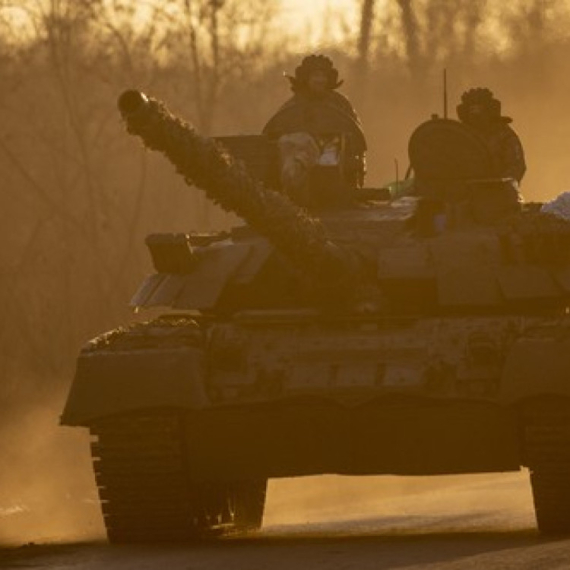
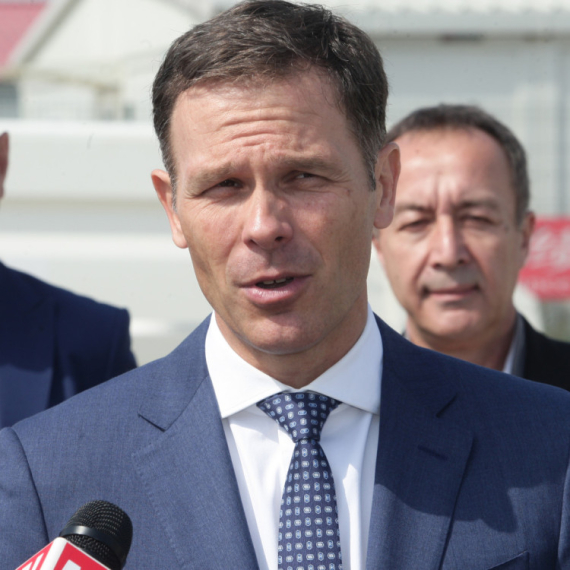
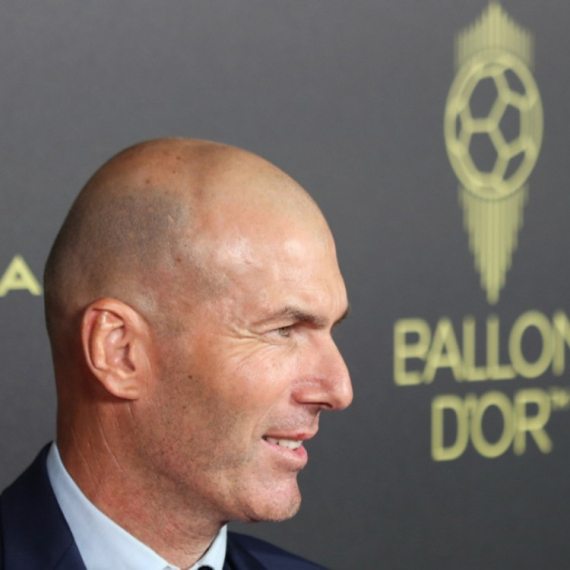
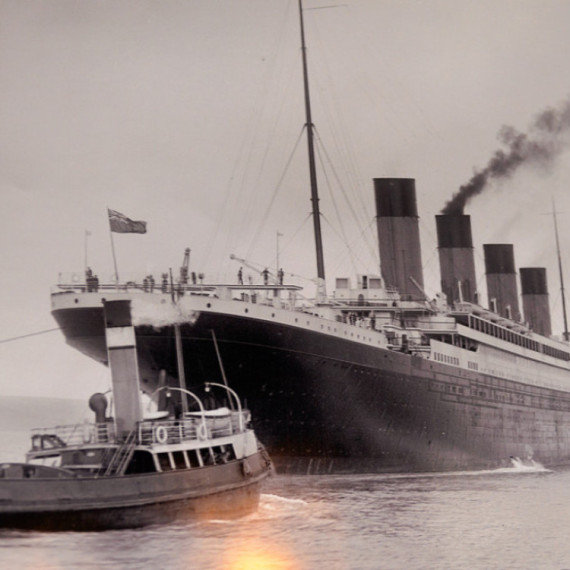
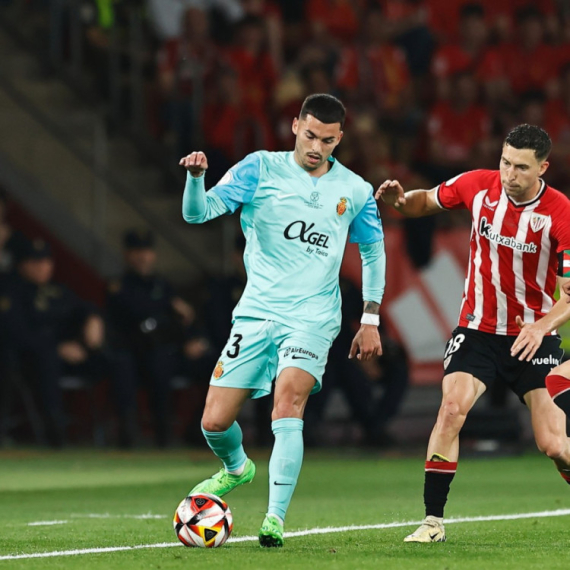
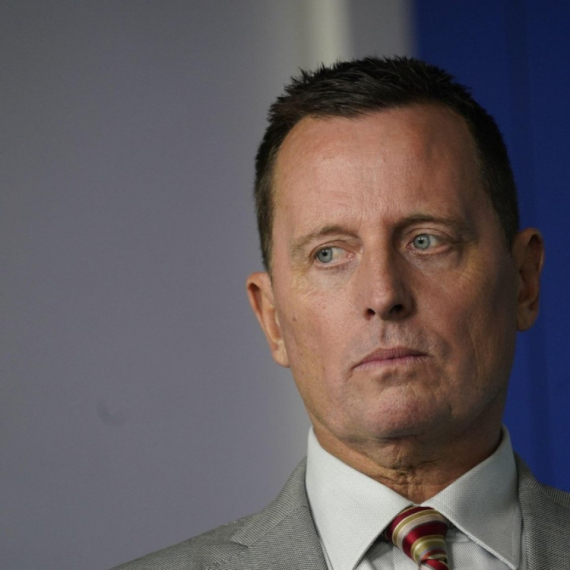
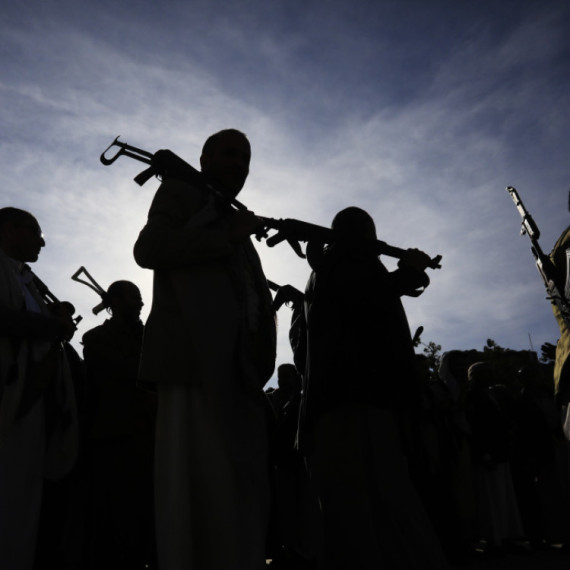
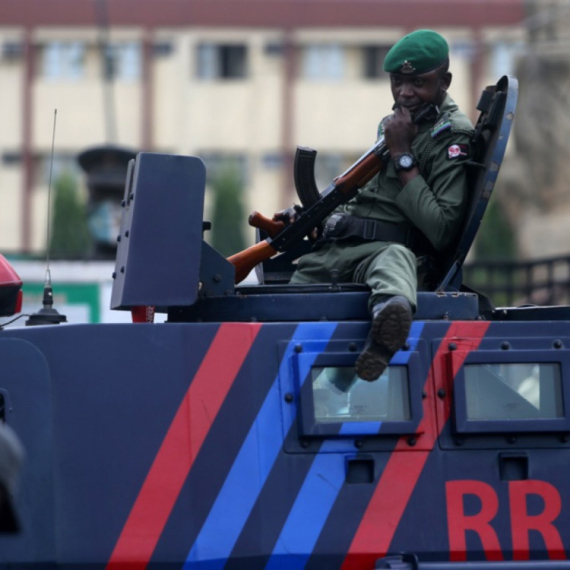
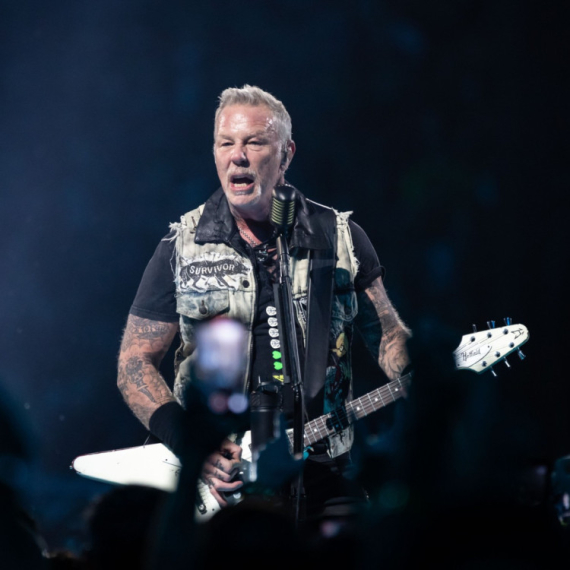
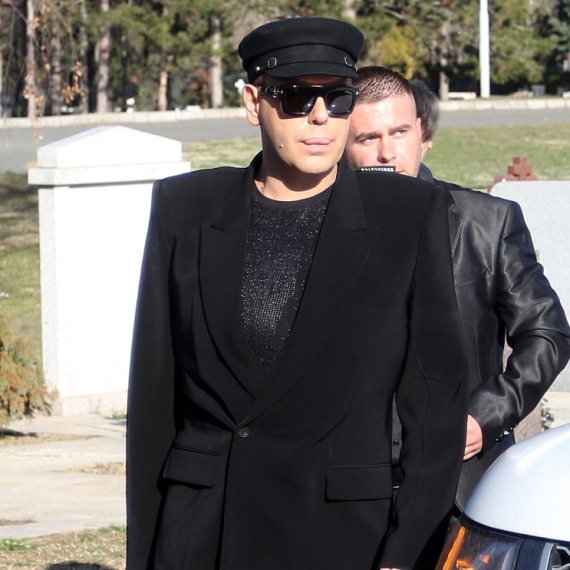

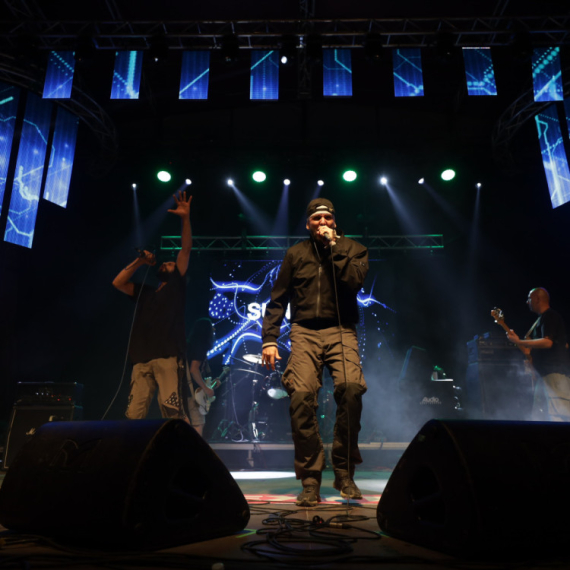



























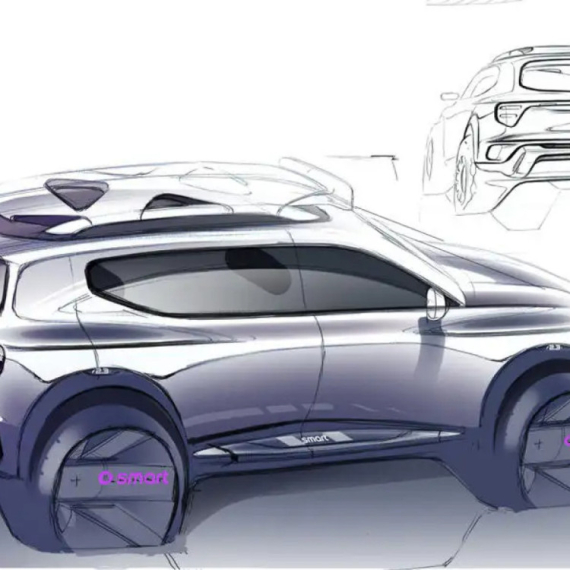
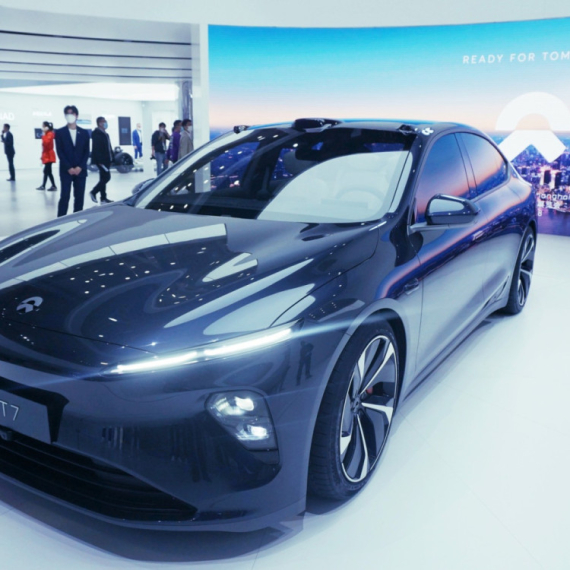



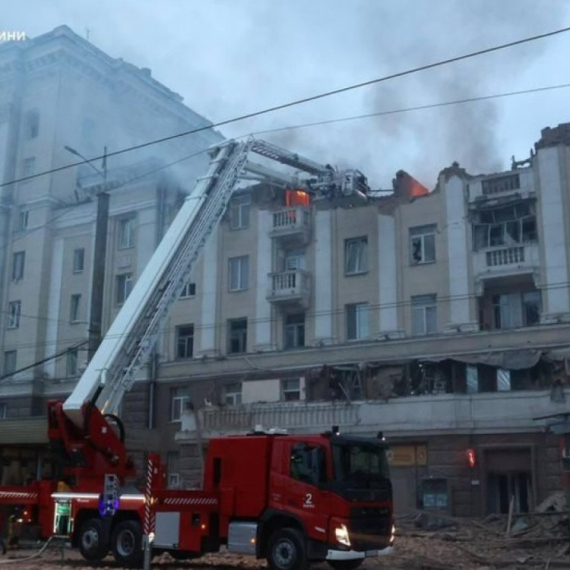
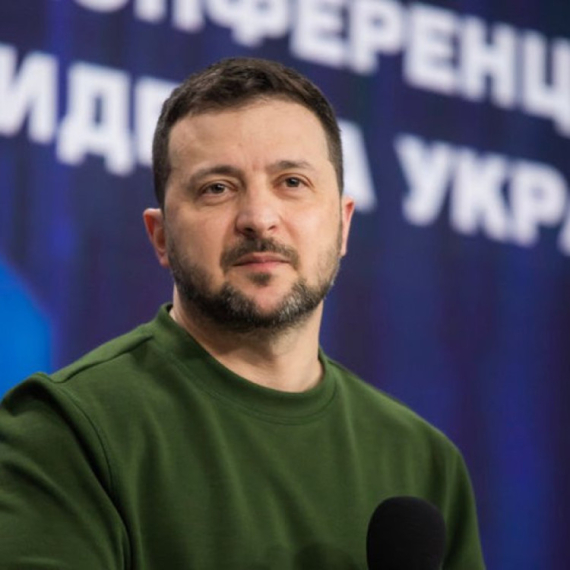

Komentari 1
Pogledaj komentare